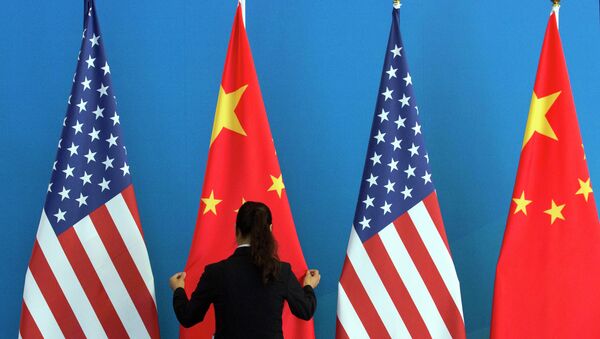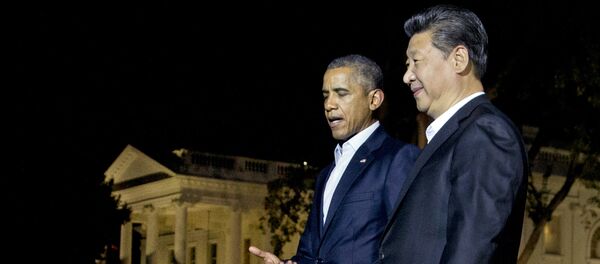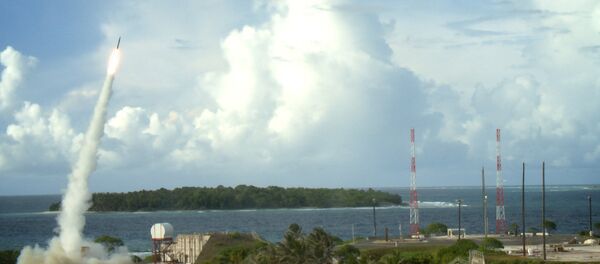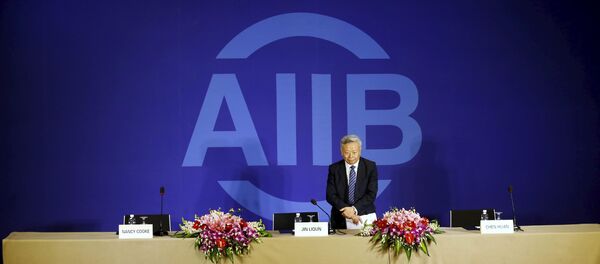“The US will continue strategy of power projection for the military-political and economic containment of China,” deputy director of the Institute of US and Canada Pavel Zolotarev told Sputnik Chinese.
“The US strategic line will not particularly change because during the change of presidents, as a rule, it does not change. The gist of it will be containment of China while maintaining a strong economic foundation which it has right now and is further developing,” he said.
At the same time, the US is looking for other partners in the Asia-Pacific region with whom to build mutually beneficial economic relations, so that it is not just a one-sided economic battle with China.
According to the researchers, such tendency can be particularly seen in the development of relations with Vietnam.
“The US needs partners in the region on whom it could lean on and constrain China. So the US search for such partnership will continue. The US military will also continue to strive in order to project its force in the region. The main instrument of this power projection can be seen in their aircraft carrier strike groups,” the expert said.
He further said that this would mean that the Americans will continue efforts to develop a missile defense system in the region and North Korea's nuclear program, in this regard, is just there to help the US.
“It provides the basis for deployment of missile defense systems on the territory of South Korea, thereby providing radar surveillance of highly sensitive areas in China,” Zolotarev said.
Talking about countries in the region like Malaysia and the Philippines the expert said, “Of course, these countries will continue to maneuver between China and the US, but in general, it is clear that they are inclined towards China. This means that sooner or later, China will establish full control over the South China Sea,” Larin said.
He further said that the US has lost to China in its dispute over South China Sea region and the new US administration will have to deal with a more powerful China, which “displaces the US from Southeast Asia and hence, from the Asia-Pacific region as a whole.”
Talking about the economic aspect of bilateral relations of the two countries, leading economist at the Institute for Far Eastern Studies, Jacob Berger, said that the clash of interests of the US and China in the context of implementation of The Trans-Pacific Partnership (TPP) and BRICS projects will increase as China's desire to become the first economy in the world will continue to grow.
“Of course, the TTP was created to constrain China. The US relies on the containment of China, but it does not want to lose the economic partnership. On the one hand, economic relations between the two countries, in general, should not be affected. These bonds are strong enough, diverse and stable, so there can hardly be any radical changes there,” Berger said.
Meanwhile, those tendencies that are inherent in the current administration — the creation of anti-Chinese economic unions, all of that will continue, whether it is Clinton or Trump in power. That is unavoidable, the expert said.
“China, for its part, will seek to weaken US unions. Of course, the United States will react to it using tough measures. However, the US capacity is generally limited so it won’t be able to do much against China,” Berger said.
He said that in general, the main characteristics of the anti-China policy of the candidate who wins, regardless of party affiliation, will not have a strong difference from his/her opponent.
Talking about the two US presidential candidates, the expert said that their difference in method is that Trump believes in isolationism, whereas, Clinton relies on interventionism.
“Nonetheless, they are almost unanimous in hardness of their position on their anti-China policy. Trump on economic issues is very harsh in relation to China, Clinton on policy balance in the Asia-Pacific region and national security policy also advocates a tough line against China.”
“In addition, Clinton was one of the authors of the anti-China policy of the government of Barack Obama,” Mian said.
The US presidential election will take place on Tuesday, November 8.







